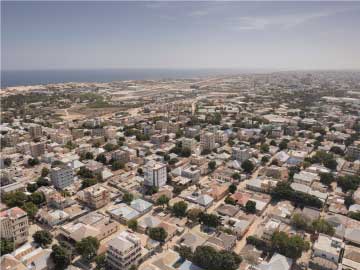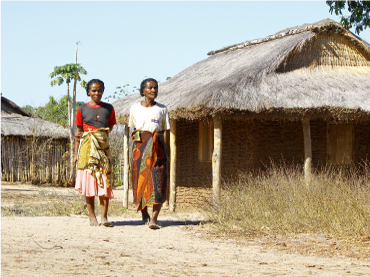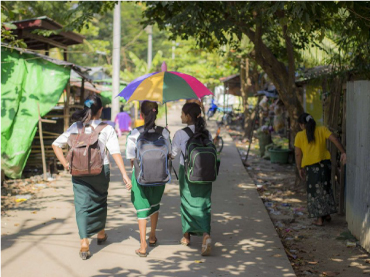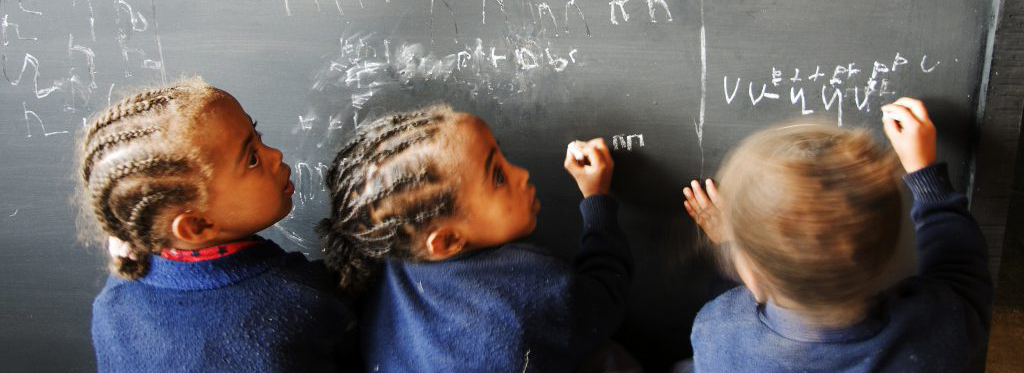
According to UNESCO data, 129 million girls around the world have been out of school even before the outbreak of COVID-19. In countries affected by conflict, girls are more than twice as likely to be out of school than girls living in non-affected countries. Due to national COVID-19 lockdowns and school closures disrupting their education, UNESCO estimates that 11 million girls might not return to school at all.
Phase 1 of the Girls’ Education Challenge (GEC) was launched by the UK Foreign, Commonwealth and Development Office’s (FCDO) in 2012 as a £355 million commitment to reach the most marginalised girls in the world and a the time it was the largest global fund dedicated to girls’ education. Phase I ran from 2012 to 2017, and directly provided quality education for over a million marginalised girls delivered through 38 projects working in 18 countries.
Phase II of the GEC started in 2017 and ends in 2025 involving 41 projects receiving £500 million to support their activities across two windows: (1) the GEC-Transitions (GEC-T) Window, which supports 27 projects supporting girls to transition to the next stage of their education across 14 countries; and (2) the Leave No Girl Behind (LNGB) Window, which involves 14 projects in 10 countries supporting up to 200,000 highly marginalised, adolescent girls who have never attended school or have already dropped out of school without literacy, numeracy and life skills.
Phase 1
We were the Evaluation Manager for the GEC between 2012 and 2018. During GEC Phase I, we designed and implemented the programme’s monitoring and evaluation (M&E) framework to assess its effectiveness, impact and value for money.
We gathered quantitative and qualitative impact data on an unprecedented scale for our client and partners in some of the most challenging research environments, including refugee camps in Kenya, Afghanistan, Somalia and the Kivus region in the Democratic Republic of Congo.
This allowed us to generate transferable lessons about what worked, for whom, where and why in delivering girls’ education outcomes. This information helped improve outcomes during the programme’s lifetime, as well as inform future programming decisions – in particular, the development of GEC Phase II.
Phase II
Tetra Tech was commissioned in February 2020 to conduct the independent evaluation (IE) of Phase II of the GEC. Our consortium of partners includes: the Research and Equitable Access and Learning (REAL) Centre at the University of Cambridge; Fab Inc.; RTI International; and a number of academic and data collection partners.
The independent evaluation will take the form of a series of seven evaluation studies on different aspects of GEC II implementation and outcomes, portfolio evaluations of the GEC-T and LNGB Windows, and a Learning Synthesis covering both phases of the GEC.
Results
Our evaluation and research evidence has provided the FCDO, Implementing Partners, wider stakeholders and policymakers with robust evidence of the impact of the GEC and insights into the types of interventions that have worked well and less well. This work plays an essential role in the design and funding of future programmes focusing on girls’ education, as well as wider FCDO departmental programming.
As we continue the journey of our independent evaluation, we will continue to provide our products and results to wider communities – FCDO country offices, conferences such as the UKFIET Conference, and to Ministries of Education around the world – to ensure work to educate girls is informed and effective.
18 countries (Phase I)
17 countries (Phase II)
2012-2018 (Phase I)
2020-2025 (Phase II)
Foreign, Commonwealth and Development Office, UK
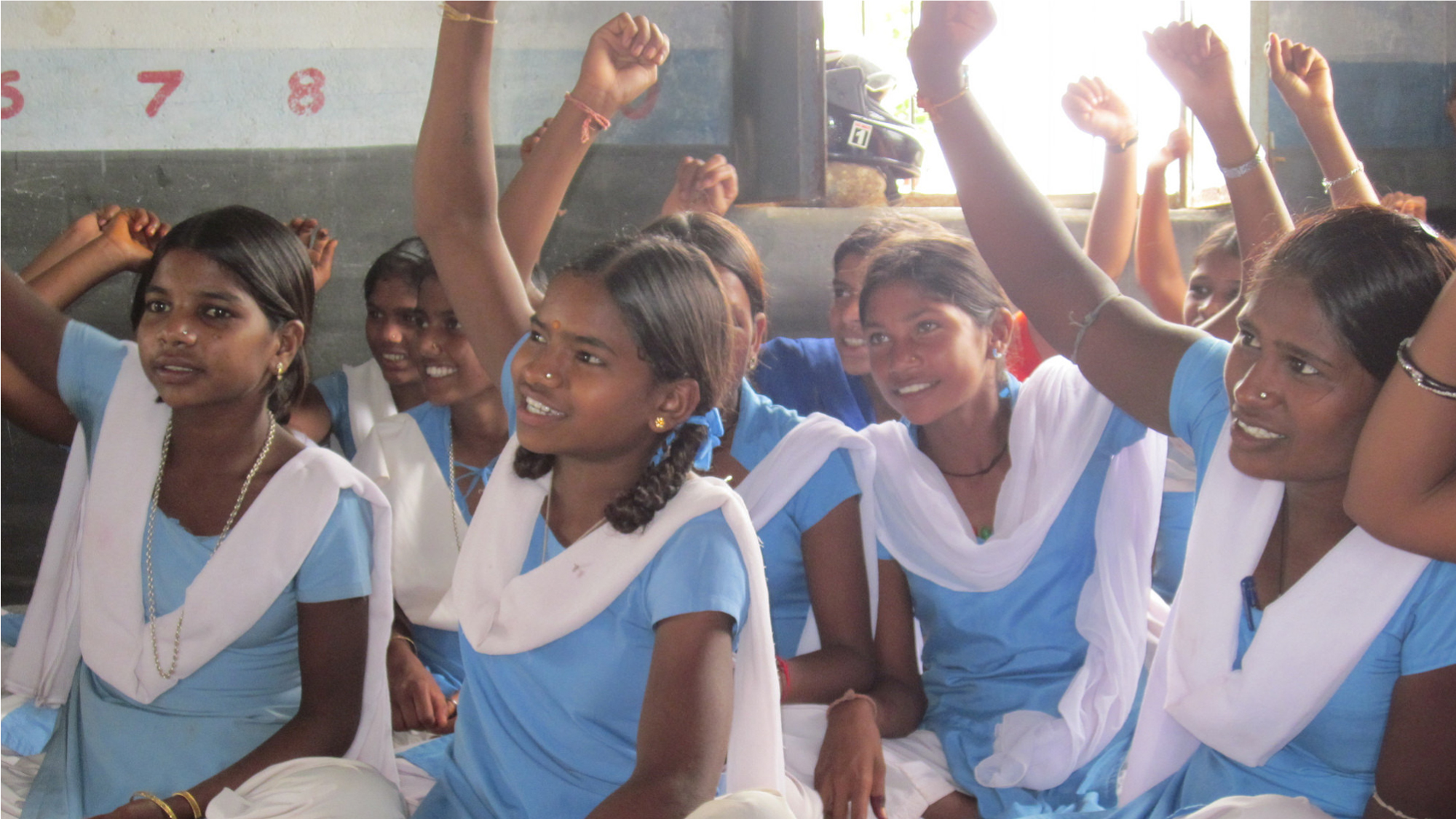
Learning products
Our team evaluating the Girls’ Education Challenge are providing our clients and stakeholder with resourceful knowledge and learning products that have proven crucial to informing the design and ongoing delivery of the GEC.
Our team has produced a wide range of reports that include important lessons and transferrable information for future girls’ education programmes. The resources from Phase I and II can be found below.
Latest publication
Value for Money of educating the most marginalised girls through the GEC
This sixth study in our evaluation of the Girls’ Education Challenge Programme Phase II (GEC II) seeks to evidence and understand the relative costs and benefits of targeting the most marginalised girls in the GEC.
In setting out this study, our evaluation team asked a range of questions to find out information including the actual cost of educating the most marginalised girls, the key benefits of this education, the relative benefits and costs for different types of marginal girls, and more.
GEC Phase 1
Explore research findings, insights and lessons learned from the first phase of the Girls’ Education Challenge (2012-2018).
Teachers and teaching
The role of teachers is imperative to advancing girls’ education. Explore our learning products to find out how teachers have worked in GEC II projects and how they adapted their teaching during the COVID-19 pandemic.
Rapid Research and Learning Fund
We have commissioned a number of studies that answer specific research questions through the Rapid Research and Learning Fund.
Pathways Beyond Formal Schooling
Study 5 explores how the activities of LNGB projects have met the girls’ needs, provided literacy, numeracy, life and vocational skills and increased their opportunities in education and beyond.
Access and learning
Our team produced a extensive and innovative number of products to understand the impact the COVID-19 pandemic and consequent school closures had on GEC II projects and the education of girls around the globe.
GEC Transition
In this third Independent Evaluation study, our team provides crucial insights into the impact of the GEC Phase II Transition Window (GEC-T).
Educating Girls with Disabilities in GEC II
We examined the extent to which GEC II projects have supported girls with disabilities through their interventions.
